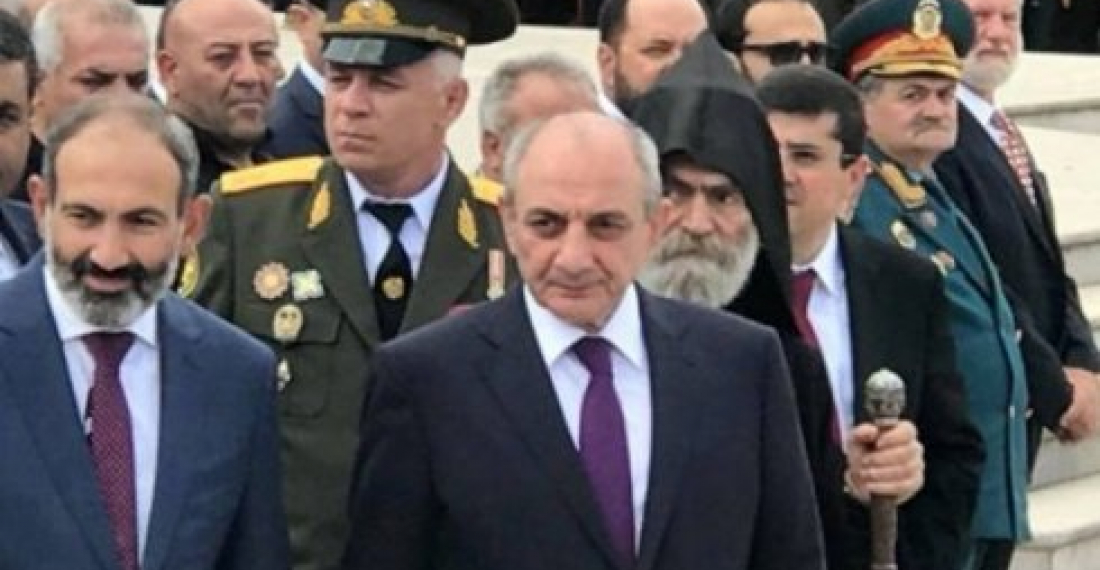Armenian Prime Minister Nikol Pashinyan has moved to try to calm down an increasingly tense domestic situation in Nagorno-Karabakh after protestors took to the streets following a brawl on Friday evening (1 June) in which a number of members of the territory's security service were reportedly involved. Street protests are unusual in Nagorno-Karabakh, and the situation caused concern to the local authorities and the government in Yerevan. The head of the de facto authorities in Nagorno-Karabakh, Bako Sahakian, held several meetings with representatives of the protestors, and also consulted with his security advisors over the weekend.
Pashinyan took to facebook on Monday (4 June) to appeal to protestors to stop their actions. He said that for several days there have been rallies in connection with the fight that took place a few days ago. Of course, there is no doubt that the behavior of representatives of security agencies is a cause for concern and even cause for condemnation, he added.
The Prime Minister said that attempts to resolve any internal situation by violence, regardless of from where it came, was unacceptable.
Pashinyan said that he was closely following events in Nagorno-Karabakh and was in constant contact with the Bako Sahakayan and he positively assessed the fact that the latter had already held several meetings with protesters and listened to their demands, and concrete agreements were reached in connection with the issues raised. Pashinyan said it was now important these agreements were implemented in a calm atmosphere. He asked demonstrators to give the authorities the opportunity to implement the agreements reached, and if they are not realized in the next days, the relevant conclusions will be drawn, and only then further protest actions can be justified.
It is understood that protestors are calling for the replacement of the heads of the internal security bodies. The protestors are not calling for the removal of Bako Sahakian from head of the self-declared Republic.
related content: Reports of political unrest in Stepanakert
source; commonspace.eu with agencies
photo: Nikol Pashinyan with Bako Sahakian at a meeting in Nagorno-Karabakh in May 2018 (archive picture)







